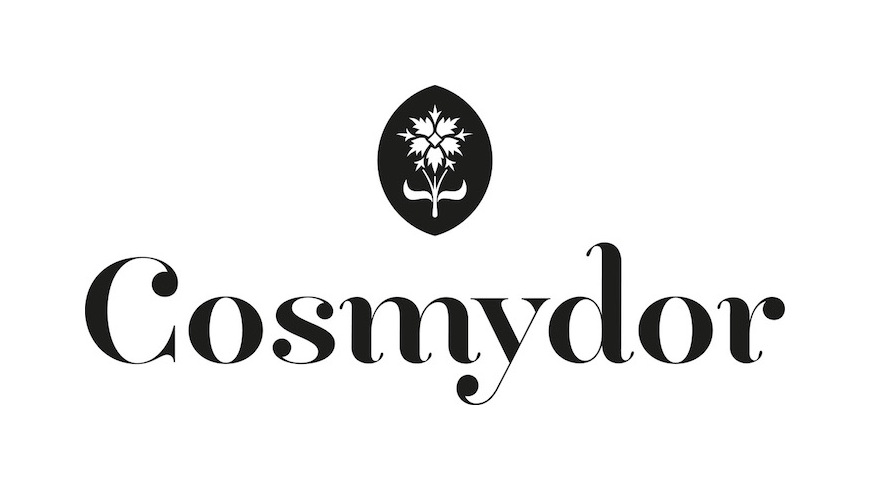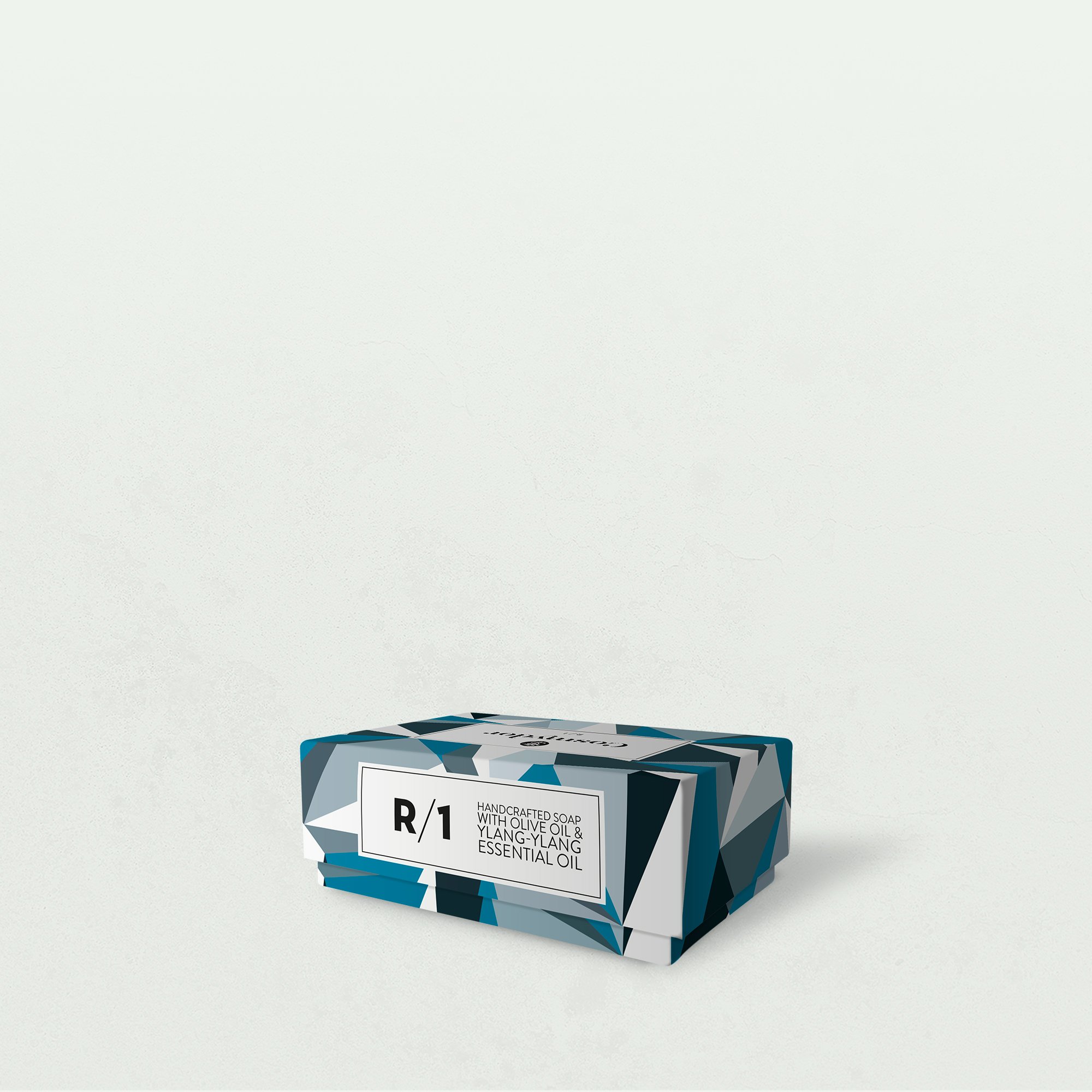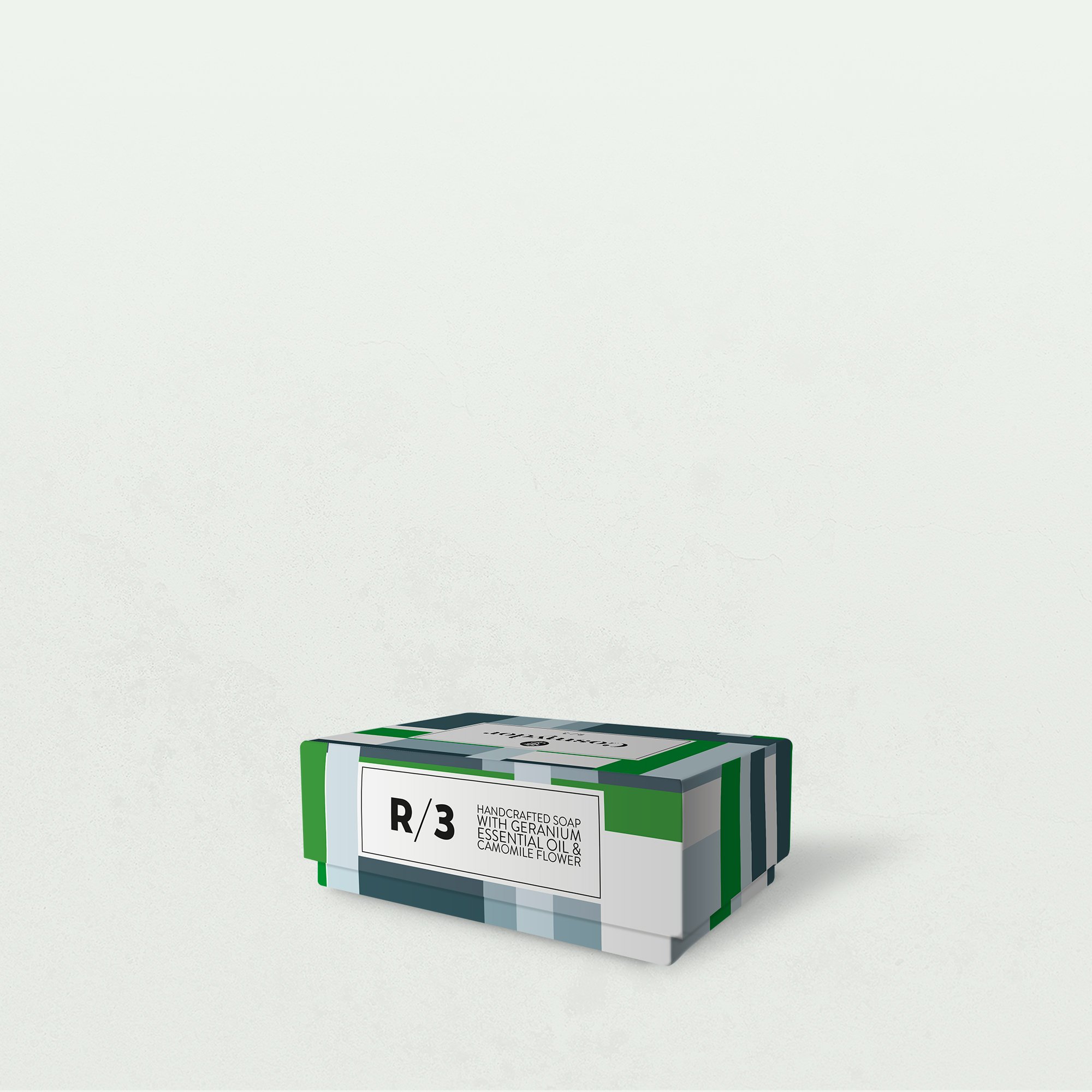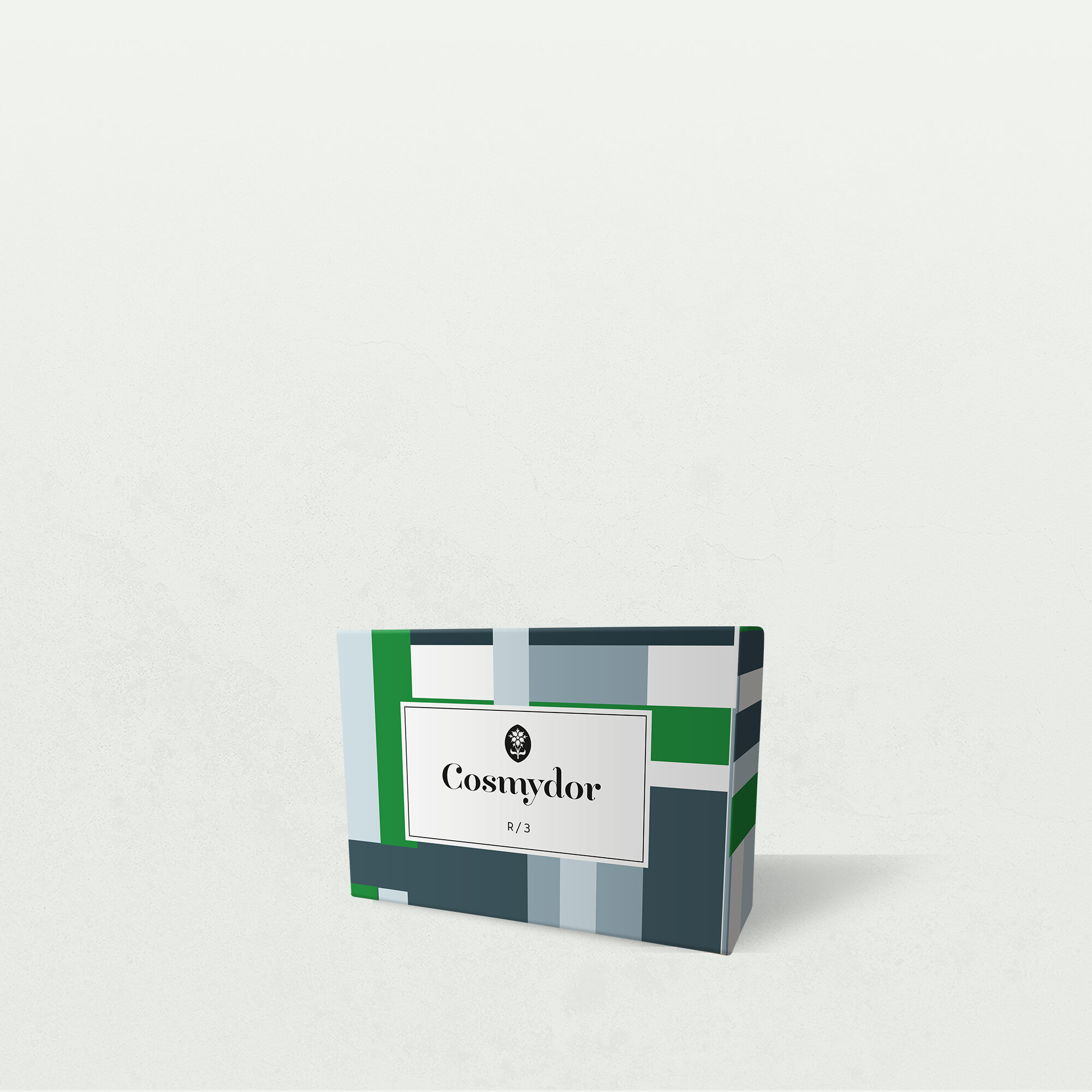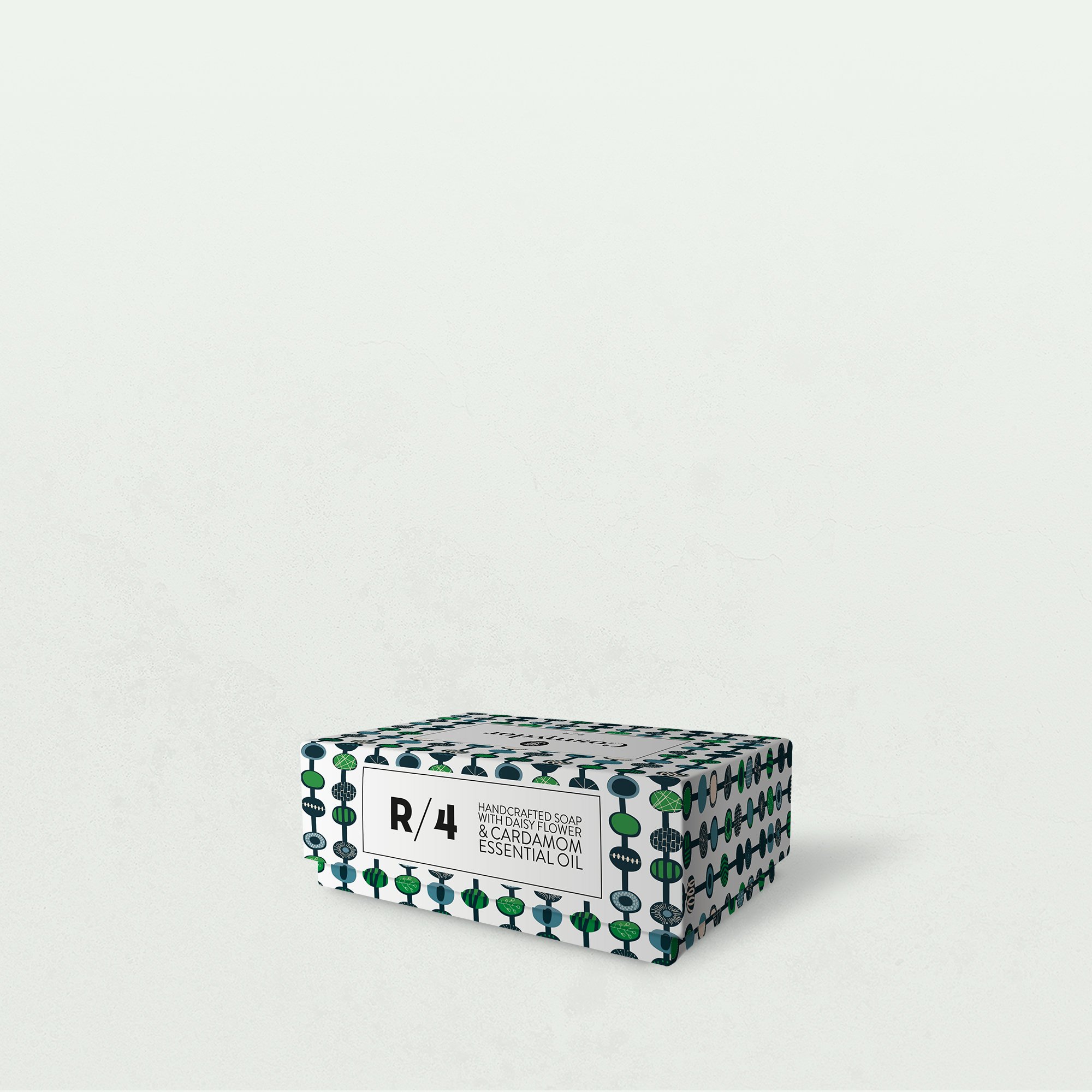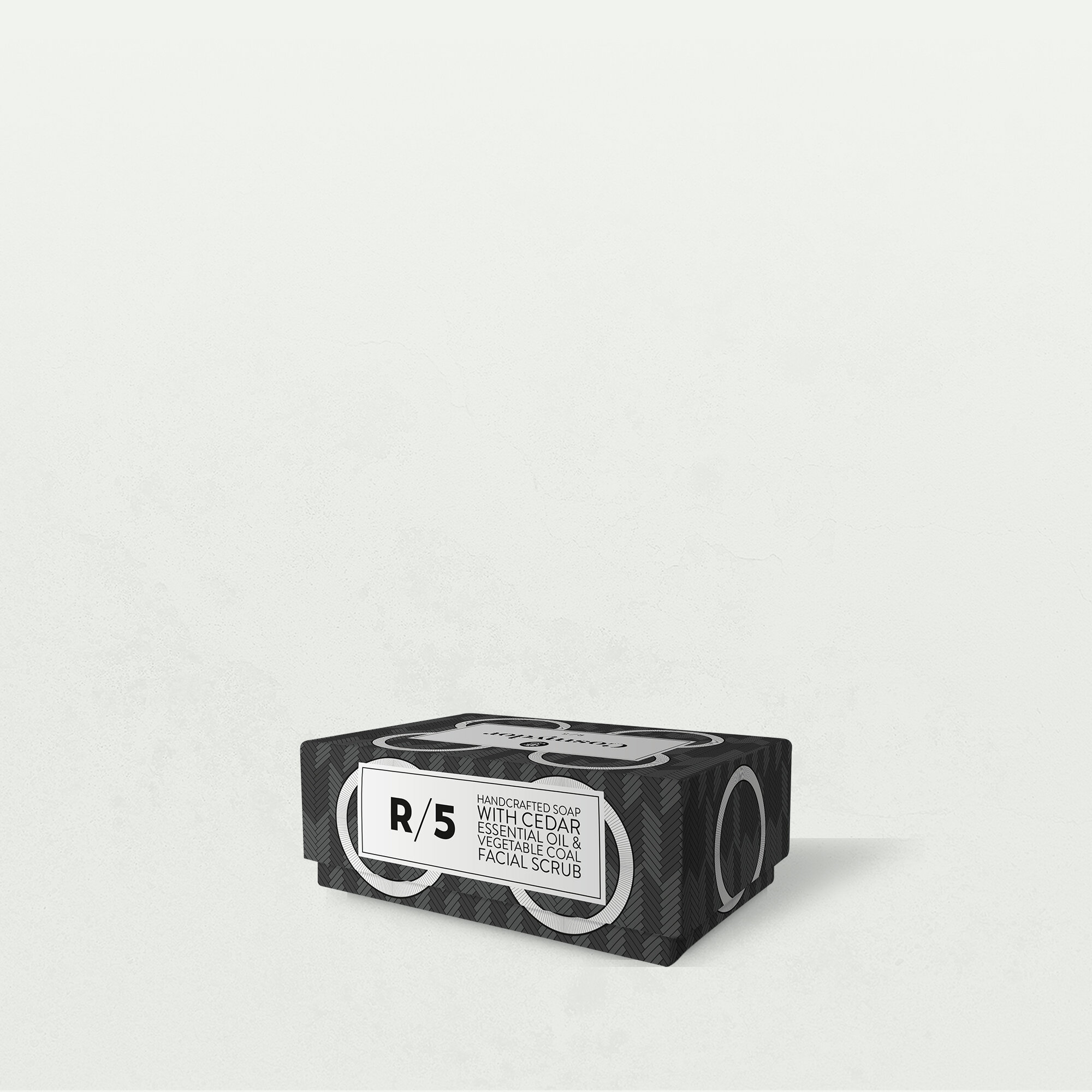R/6 Handcrafted Soap with Macadamia Oil & Peppermint Essential Oil
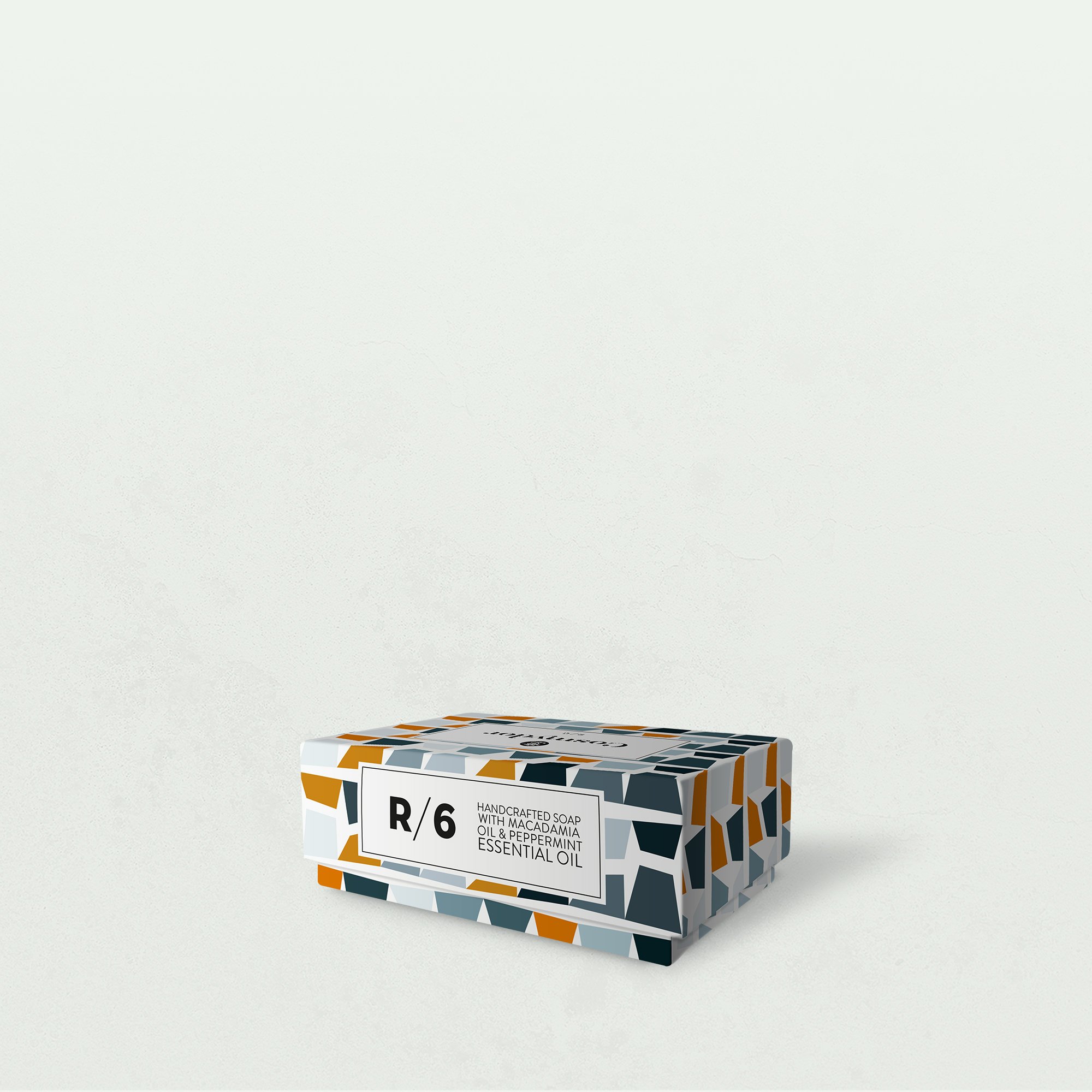




R/6 Handcrafted Soap with Macadamia Oil & Peppermint Essential Oil
The glycerine naturally produced by the cold-process soap-making (7 to 8%) combined with the (unheated) essential oils make this soap a product that truly cares for your skin.
Benefits
The transformation of shea butter and coconut oil by the soap-making reaction into glycerine ensures naturally strong moisturising and softening benefits for your skin.
The R/6 soap was designed to stimulate tired skin: the macadamia oil prevents the oxidation of skin cells while the mint wakes it up, giving it tone and vitality.
This soap’s extraordinary smell comes only from its ingredients: you literally breathe in the plants and flowers used to make it.
Content
100g 3.52oz (approximately: all our soaps are cut by hand)
VEGAN BAR SOAP HANDCRAFTED IN FRANCE WITH MORE ACTIVE PLANT INGREDIENTS
Butyrospermum parkii butter (shea butter)*, aqua (water), cocos nucifera oil (coconut oil)*, sodium hydroxide, macadamia integrifolia /tetraphylla seed oil (macadamia oil)*, citrus limon peel oil (lemon peel oil)*, mentha piperita oil (peppermint oil)*, limonene, citral.
* Organic ingredient
Virgin oil/butter obtained by cold pressure
"As with any soap, avoid eye contact. If contact occurs, rinse thoroughly with clean water. Suitable for adults. Not recommended for pregnant or breastfeeding women."
MORE DETAILS ON R/6'S BOTANICAL ORGANIC FORMULA
Butyrospermum parkii butter (shea butter)
Shea butter is a natural fat derived from the nuts of the shea tree that has been used for centuries in West African cultures for its medicinal and cosmetic benefits. Shea butter contains a high concentration of vitamins A, E, and F, which work together to nourish and moisturise the skin. Its fatty acids also help to protect the skin's natural oils and improve its elasticity. Shea butter is particularly beneficial for dry, sensitive, or ageing skin as it can help reduce the appearance of fine lines and wrinkles. It is also a great ingredient for those with eczema, psoriasis, or other skin conditions, as it can soothe and heal irritated skin. Overall, shea butter is a fantastic natural option for a healthy, hydrated, and glowing skin.
Cocos nucifera oil (coconut oil)
Coconut oil is obtained by expression from the dried inner flesh of the coconut, Cocos nucifera. Coconut oil is high in protective antioxidants and antibacterial fatty acids. It suits all skin types and is light, non-greasy and rapidly absorbed giving deep hydration and conditioning to skin, scalp and hair. Research shows it can improve skin elasticity helping prevent premature ageing and wrinkle formation.
Sodium hydroxide
Also known as lye, is an essential ingredient in the soap-making process. When sodium hydroxide beads or flakes are mixed with a liquid, a lye solution is created. This solution, when mixed with fats and oils, will cause a chemical reaction called saponification: the lye and oil molecules combine and chemically change into soap and glycerin - sodium hydroxide will have then completely disappeared.
Macadamia ternifolia seed oil (macadamia oil)
Macadamia oil is a very good moisturiser to start with. This lightweight oil that contains palmitoleic acid works as a moisturiser to keep your skin smooth and beautiful. It is a very gentle oil and very similar to our sebum. The palmitoleic acid, which the human body decreasingly produces as we age, will help prevent the appearance of fine lines and wrinkles.
Citrus limon peel oil (lemon peel oil)
Essential oil of the lemon zest, it is purifying and sanitising, and helps regulate the production of sebum.
Mentha piperita oil (peppermint oil)
Refreshing, invigorating fragrance agent, it is also used for its astringent properties (tightens pores thus refines the skin texture), and as a purifier.
Limonene, citral, linalool
These are not ingredients in the formula, but naturally occurring allergens mostly from essential oils which have to be indicated on packaging over a certain threshold as per European regulations. According to the European Scientific Committee on Consumer Safety (SCCS), 1% to 3% of the European population may be allergic to these natural substances.
